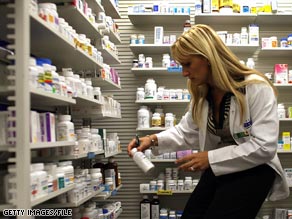Sharply lower consumer spending in the United States and other high-income countries is stalling global trade, causing a surprise downturn in exports from China that is dramatically slowing its economy and rippling through other countries that rely on international commerce.
With recessions hitting the United States, Europe and Japan at the same time, China yesterday said its November exports took their biggest dive in seven years. Weak holiday spending is taking a particularly hard toll on toymakers: Two-thirds of China's small-toy exporters closed in the first nine months of 2008, according to government statistics. At the same time, tight credit and falling global demand are setting off the first decline in world trade in a quarter century, touching off a wave of job losses in rich and poor countries alike.
The drop in trade is both sharper and faster than many analysts had predicted only weeks ago, with freight lines that were sailing full this summer now slashing prices by as much as 90 percent as cargo traffic plummets and unsold goods pile up at ports from Baltimore to Shanghai. The World Bank this week said global trade is set to fall by 2.1 percent in 2009, marking the first decline since 1982. The drop is contributing to a more dire outlook for the world economy, which the World Bank said is close to falling into a global recession.
The slowdown illustrates how globalization, which fed rapid growth during times of plenty, can quickly turn against nations during times of bust. Depressed car sales in the United States, for instance, are spreading through the global supply chain, eliminating jobs for contract auto workers in Japan and laborers in South Africa who mine the metals used in car parts.
The impact on China, one of the rare lights in an otherwise gloomy global economy, is particularly troubling. Beijing announced yesterday that its November exports dropped 2.2 percent after a 19.2 percent surge in October. Imports took an even steeper drop, falling 17.9 percent. Analysts now say growth there is slowing to its lowest level since 1990, curbing Chinese demand.
Reversing Course
That is bad news for the United States and other high-income countries that were counting on sales to China and other emerging markets to help combat recessions at home. Earlier this year, an array of U.S. exports including Boeing jets and Caterpillar tractors were at least partially offsetting weak domestic demand. U.S. trade data to be released today are expected to show another jump in October exports. But analysts say those numbers do not reflect industry estimates that U.S. exports reversed course in November as the financial crisis deepened worldwide.
"You can essentially say the U.S. export boom is over," said Brian Bethune, chief U.S. economist for IHS Global Insight.
In recent weeks, the World Bank has had to step in with loans to exporters in developing countries because the global credit crunch dried up short-term trade financing needed to ship goods overseas. In one case, World Bank officials say, a Brazilian company had an overseas buyer for a large shipment of soy beans, but they rotted on the docks because the exporter could not secure the funds for shipping and insurance.
"Global trade is reversing course because it is a function of industrial production, and we're seeing the biggest coordinated slump in industrial production since the early 1930s," said Philip Suttle, director of Global Macro Analysis at the Institute of International Finance. "In the old days, you'd get weakness in one part of the world, and it would take three to six months to impact another part. But now, everybody is so interconnected through trade that the impact is happening instantaneously."
Sharp Slowdown
The sharp slowdown has caused commodity prices to plummet, ending a historic five-year boom in prices for oil, food and metals. That is helping importer nations like the United States, where the steep drop in gas prices is providing a market-based fiscal stimulus to Americans by allowing them to save cash at the pump.
But in South Africa, the fall in prices for commodities like platinum -- an industrial metal now 50 percent off its March peak as the auto industry, which uses it for car parts, suffers deeply depressed sales -- has caused mining companies to issue layoff notices to thousands of workers hired in recent years.
The biggest cuts in South Africa are likely to be at Lonmin, the world's third-largest platinum mining firm, which has announced plans to lay off 5,500 workers at two of its mines. The effects of such cuts will radiate far beyond the mines, analysts and union officials say.
'Business' 카테고리의 다른 글
| IRL extends TV contract with ESPN International (0) | 2008.12.12 |
|---|---|
| Nobel Physicist Chosen To Be Energy Secretary (0) | 2008.12.11 |
| Meta Data: Videophones (0) | 2008.12.11 |
| Japan's Nikkei average slipped 1.2 percent (0) | 2008.12.11 |
| SKorean central bank slashes key interest rate (0) | 2008.12.11 |




